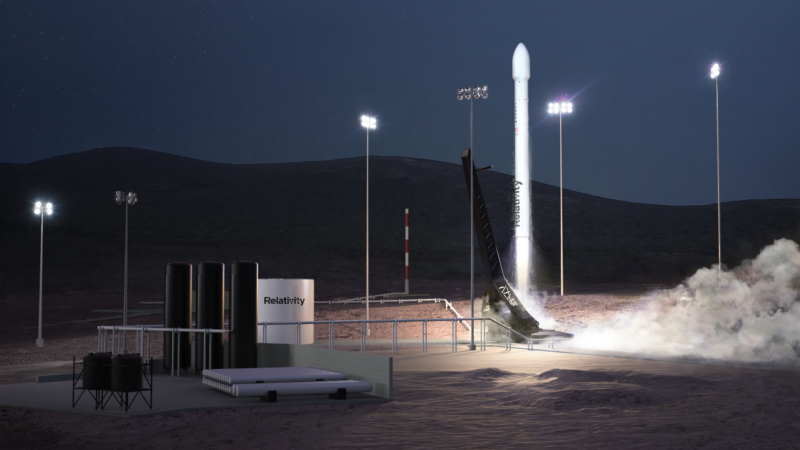
Relativity Space says it has reached an agreement with Iridium to launch six of the company's next-generation communications satellites.
Each of the Iridium NEXT satellites, which weigh 850kg, will be launched individually on Relativity's Terran 1 rocket. This means the new Launch Services Agreement will lead to as many as six Terran 1 missions, beginning no earlier than 2023.
This is the fifth launch-service agreement for Relativity, said Tim Ellis, co-founder of the California-based company. "This agreement represents yet another blue chip company to sign up with Relativity," Ellis said. It demonstrates that the Terran 1, with a potential lift capacity of 1.25 tons to low Earth orbit, fills a "unique" need in the launch market, he said.
Relativity Space is presently developing a launch site for its Terran 1 rocket at Cape Canaveral Air Force Station in Florida. The company has a multiyear contract to build and operate its own rocket launch facilities at Launch Complex 16. However, it will need a second launch site to accommodate Iridium's satellites.
That's because Iridium has a constellation of 66 satellites in a near-polar orbit, spread across six different planes at an altitude of 780km. To reach this orbit, the Terran 1 rocket would need to launch toward a pole, and so the company has reached an agreement to build a second launch site at Vandenberg Air Force Base in California, Ellis said. The company will do so at a site south of Space Launch Complex-6.
Finding the sweet spot
The satellite company already has nine backup satellites in orbit, said Iridium Chief Operations Officer Suzi McBride. However, Iridium has six additional spares on the ground it would like to eventually launch on demand, to specific orbital planes. The new agreement covers a period from 2023 through 2030.
Iridium built these satellites primarily as insurance against a launch failure during the campaign to put its first 75 Iridium NEXT satellites into orbit. All of those were safely placed into orbits by seven Falcon 9 rocket launches from 2017 through 2019. "Thankfully, SpaceX did a great job for us," McBride said.
In launching the spares, Iridium assessed the market and determined that a number of capable vehicles, such as the Falcon 9, were too large for individual satellites. And the smallsat rockets currently flying, such as Rocket Lab's Electron rocket, were too small. "Relativity is really right in our sweet spot," she said.
Although Relativity has a lot of work to do to finalize development and launch the Terran 1 rocket—the company's goal is to make a test flight late next year—McBride said Iridium has the luxury of not needing to get its backup satellites into orbit right away. She also expressed confidence in the company's team and progress made to date.
A recent hire at Relativity, Zach Dunn, helped establish SpaceX's launch site at Vandenberg about a decade ago. And Dunn served as senior vice president of Launch for SpaceX during the entirety of the Iridium campaign. He is now spearheading development of a new rocket factory in Long Beach.
"six" - Google News
June 24, 2020 at 08:00PM
https://ift.tt/3hWtNqp
Iridium plans to launch six satellites on Relativity’s new rocket - Ars Technica
"six" - Google News
https://ift.tt/3dcBbL9
https://ift.tt/2Wis8la

No comments:
Post a Comment